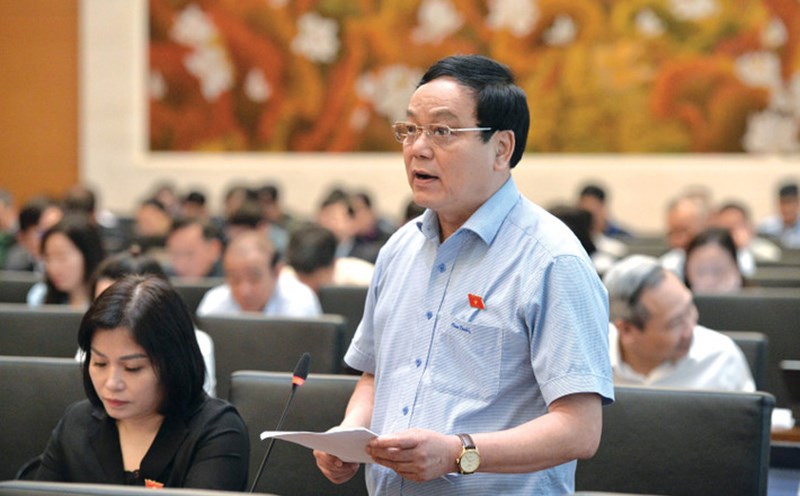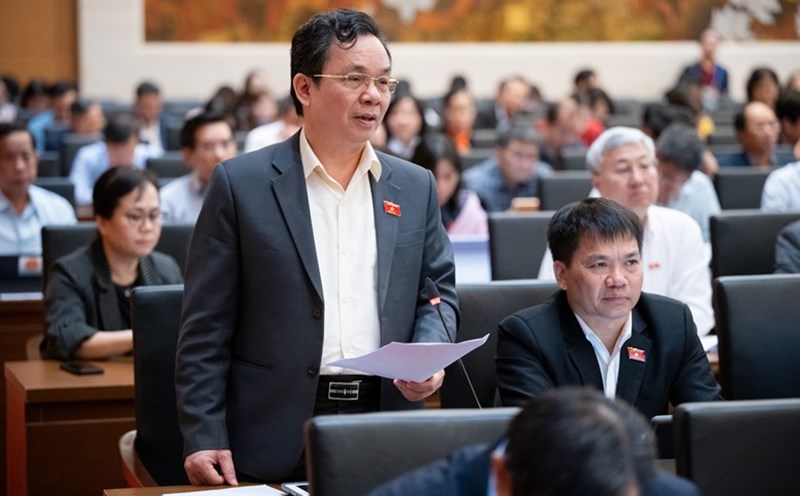On March 26, full-time National Assembly deputies discussed the draft Law on Corporate Income Tax (CIT) amendment.
Delegate Thach Phuoc Binh - Deputy Head of the XV National Assembly Delegation of Tra Vinh Province - expressed concern when this draft law includes many contents but the content of tax rates for press agencies has not been adjusted.
"The content of tax rates for press agencies I spoke at the 8th session, however, up to this point the draft law has not been accepted, so I continue to express my views on this content" - delegate Binh emphasized.
This person said that according to the provisions of Article 10 of the Law on Corporate Income Tax (amended), press agencies still have to pay the general corporate income tax rate of 20%.
However, Point d, Clause 2, Article 13 of the draft law stipulates a preferential tax rate of 10% for the income of press agencies from print newspapers in the press industry and profession, including advertising in newspapers according to the Press Law.
This is an inadequacy in the tax rate policy for press agencies. Currently, online journalism is becoming the main method, while print newspapers are declining.
Practicially, I read electronic newspapers faster than print newspapers, so print newspapers are declining. Many news agencies have cut or stopped publishing paper newspapers to focus on electronic newspapers.
Print newspapers are entitled to a preferential tax rate of 10%, while electronic newspapers are subject to a tax rate of 20%, even though both serve the purpose of providing official information, orienting public opinion and performing communication tasks of the Party and State" - delegate Binh said.
In addition, according to this delegate, the current trend is that electronic newspapers have a large source of revenue from advertising, content fee collection and digital services. However, these sources of income are still subject to a tax rate of 20%, while print newspapers can enjoy a tax rate of 10% for advertising on paper newspapers.
At the same time, applying higher taxes to electronic newspapers negatively affects the press in the context of competition, many press agencies have difficulty maintaining operations due to declining revenue.
The requirement is digital transformation of the press, but the tax policy has not kept up, which will create a financial barrier for electronic newspapers.
Many cross-border online platforms account for a high advertising revenue but are only subject to indirect tax, while domestic press units have to pay high taxes and compete fiercely.
To ensure fairness and encourage press development in the context of digital transformation, it is necessary to apply a tax rate of 10% to all press agencies, regardless of print or electronic newspapers. This solution brings many different benefits, delegate Binh suggested.
If a tax rate of 10% is implemented for all press agencies, it will contribute to improving competitiveness with cross-border platforms, contributing to protecting mainstream press.
Reporting at the meeting, Deputy Minister of Finance Cao Anh Tuan said that in the current context, especially the rearrangement of press agencies, applying a tax rate that does not distinguish between print newspapers and other types of press is appropriate.
Agreeing with the opinion of National Assembly deputies, the drafting agency will coordinate with the examining agency, the Economic and Financial Committee, to review and accept the plan prescribed at the same level of 10%, and submit it to the National Assembly at the 9th Session.











